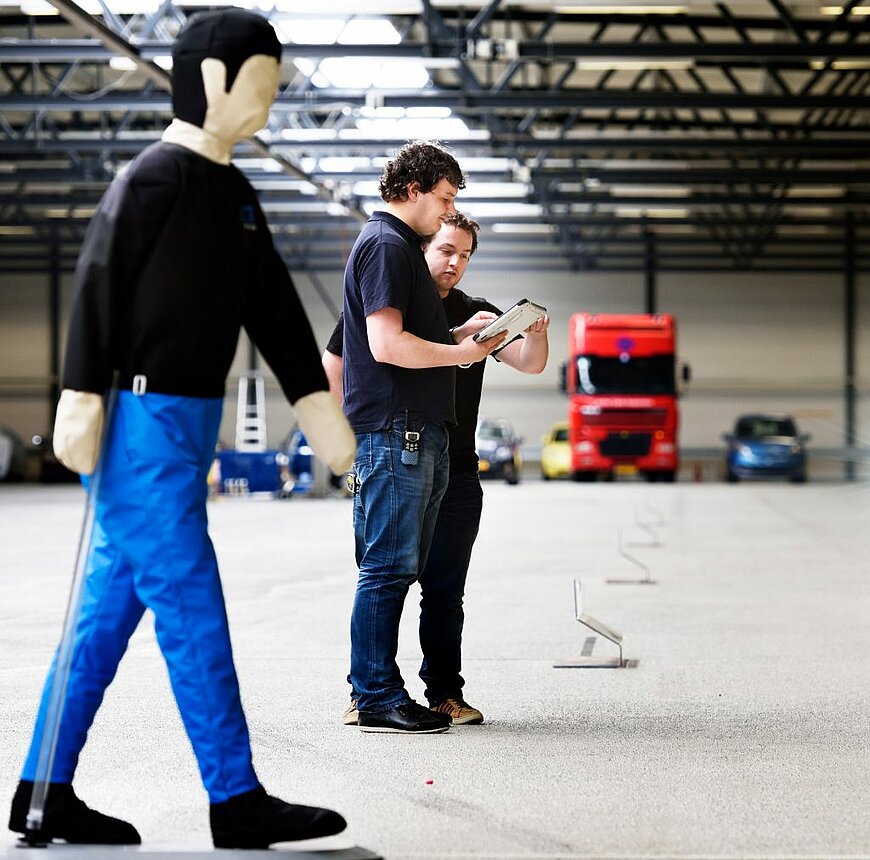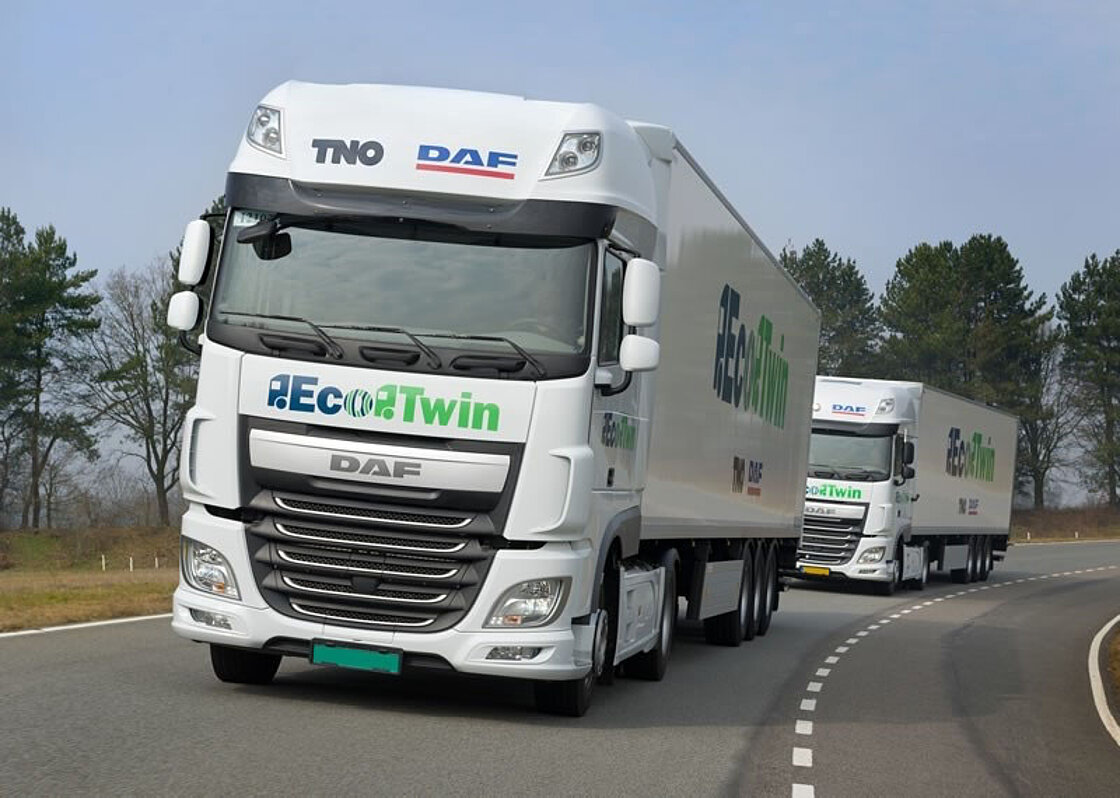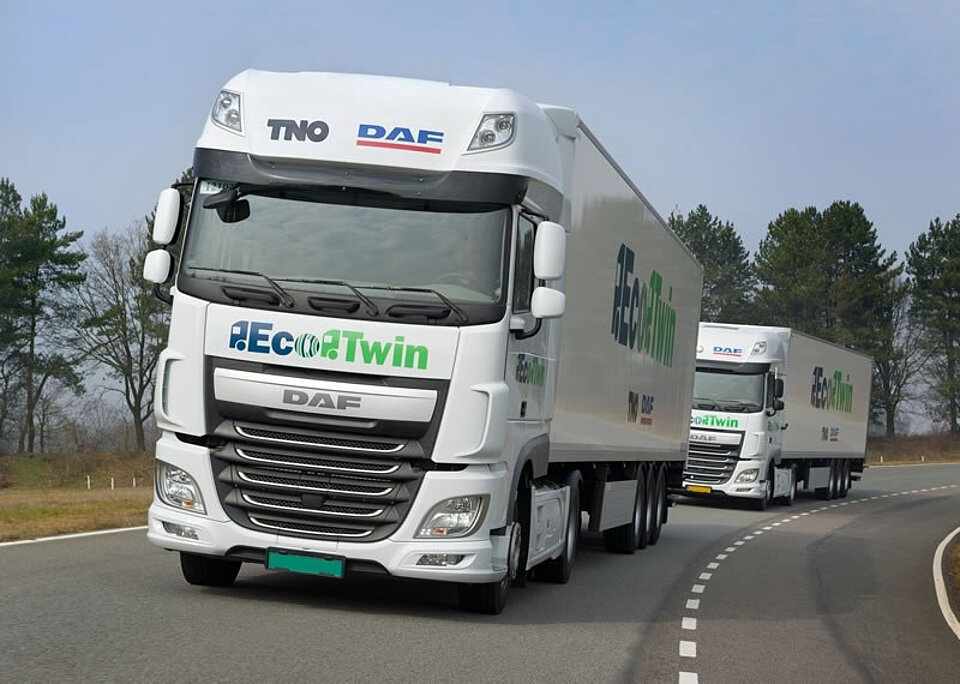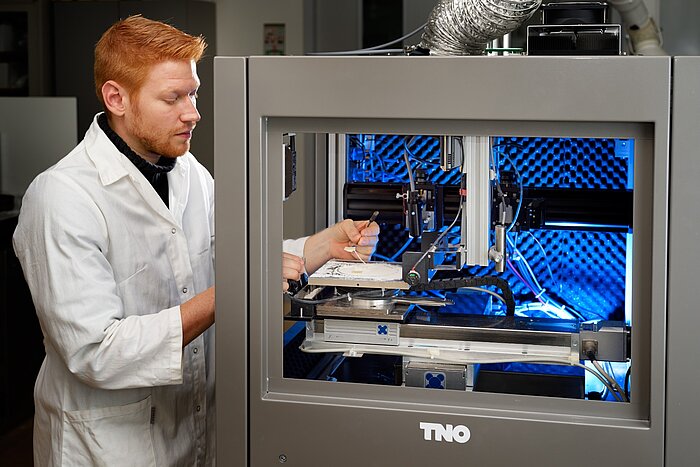Connected automated driving shapes the future
Dr. Ir. Maurice Kwakkernaat is responsible for the automated driving program of the Dutch research institute TNO that is situated in Brainport Eindhoven.
His main focus is on accomplishing safe and efficient interaction between road users and traffic systems using wireless communication. One of the topics he is working on are fully automated trucks. Maurice is convinced that they will hit the roads within five years. He finds his work a TNO fascinating: “We are causing a revolution in mobility and I am part of that!”

As Program Manager Automated Driving and Integrated Vehicle Safety, Maurice has a key role in shaping future traffic. “At TNO we need to develop fundamental in-depth knowledge about a lot of technologies involved in automated driving, “he explains. “We need to know what we want to reach within ten years’ time and what technology we need for it.”
Trucks most likely to be the first self-driving vehicles on public roads
“Most media show items about cars when they address the topic of automated driving and that is what you hear about most but trucks are most likely to be the first vehicles that will be on the road fully automated. Together with DAF, NXP and other partners, TNO is realising platooning. Within now and five years trucks will be fully automated and will drive in platoons. The reason why platooning is going to be realised first is that there is a sound business case for the industry. Platooning leads to fuel savings and a reduction of human capacity and therefore to enormous reductions in costs.”
A safe system for automated driving does not exist yet
“If you look at cars, a business case is not as clear. People are interested in new functionalities but in the end the question is if they are willing or able to pay for it. Moreover, fully automated driving requires a very robust system in order to be safe. It requires redundancy. A system like this simply does not exist yet. We are still at the beginning of the implementation of these kinds of systems.”


Knowledge is needed to realise automation of cars
“A lot of lot of research, development and learning by doing has to be done before we can ensure that fully automated driving of cars is safe. For this we need knowledge of advanced sensors, new control concepts, develop software that is secure, and build knowhow on how to integrate systems. We need people with a sound view of the world that can merge all this knowledge and test each possible scenario. For this reason, the number of people working at the Automotive Campus at TNO has already doubled in size over the last few years and it is still growing.”
TNO is causing a revolution and I am part of that
“The work that we do here at TNO is fascinating. Together we are changing society. In a number of years, we are going to be able to do things that at the moment you cannot even think of. What we invent will help solve climate issues, lead to fewer roads, less or no parking lots and maybe eventually fully automated rural areas. Together, we are causing a revolution in mobility and I am part of that!”
